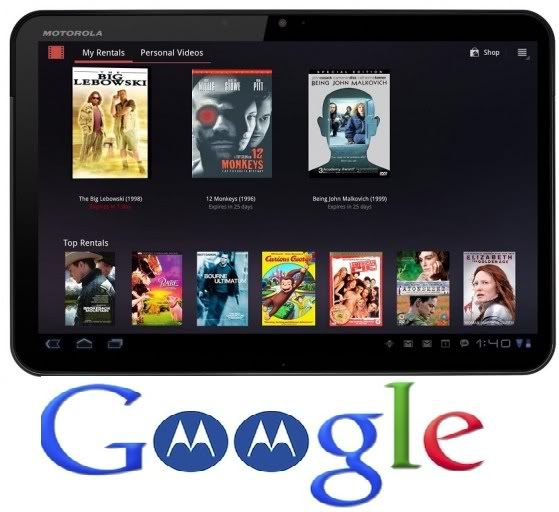Google bought Motorola Mobility by $12.5 billion.mobile worlds into a frenzy.
Motorola Mobility, the mobile handset manufacturer, was bought by Google for $12.5 billion – sending the tech and mobile worlds into a frenzy.
Google CEO Larry Page says the deal will “supercharge the Android ecosystem”, a pointed piece of rhetoric clearly aimed at the direction of fellow US tech giant Apple.
For its $12.5 billion, subject to regulatory approval by authorities in the US and European Union, Google gets its hands on not only a mobile handset but also a tablet provider.
Google is stressing that Android will remain an open platform, clearly much to the relief of other manufacturers that have thrown their lot in with the operating system.
Promises aside, executives at Samsung, HTC and Sony Ericsson will be watching nervously to see whether Google keeps the so-called good stuff from Android for itself (the same accusation levelled at Google during the ITA Software acquisition saga).
There is also the Blackberry question – will this move also hurt manufacturer RIM?
For the travel industry it is a double-edged sword: fewer platforms is good (easier to develop), but dominance by just one or two players arguably stifles competition.
It could be argued that with Google moving into the the application space, as opposed to their traditional media and infrastructure role, this will cause concentration at a time when such efforts are not benefiting the broader consumer.
This will enable Google to power ahead in integrating solutions that others will find hard to replicate or if they do – in fact, some might argue Google will always have a head start (something it tends to have in search, video and mapping, but less in social, for example).
Where this gets really interesting is around the idea of bringing travel services close to the consumer via mobile.
Blackberry was the first out of the blocks with a dedicated, pre-loaded travel application developed by Worldmate earlier this year.
Apple has also spent the best part of the past 16 months happily filing patents in the US which illustrate what it has in mind for a dedicated iTravel system, included as a native app with each iPhone and iPad.
And now Google has the opportunity to do exactly the same thing.
Until now, manufacturers running the Android operating system have handed the decision making for which apps to use on a handset (travel or otherwise) over to the consumer.
Users would download a metasearch app such as Skyscanner or Kayak, for example, and that would be their product finding tool on a handset. All the other travel-related apps, such as destination guides et al, would happily sit alongside.
But manufacturers do not make a bundle of money from travel-related apps, especially when download volumes can be pretty slim after the initial buzz around a new service.
Product search, however, is another issue entirely.
With a native travel application already on Blackberry, one coming soon no doubt to iPhones and iPads and, now, Google having the ability to ship travel search as a native app on all Motorola devices, the travel search ecosystem will change yet again.
As one mobile exec has been saying in various forms for some time: “The battle in mobile and travel is not about downloadable apps or the mobile web – it is about how devices will make travel tools a core part of their functionality, alongside calendars, mail, weather and images.”
In the same way that Google wants to somehow put travel front and centre within browser search (hey, it didn’t buy ITA Software just to get the inside track on the tricky recruitment puzzles), with a handset under its control the same can now be applied to the mobile space with a native application.
Of course, this deal isn’t all about travel and native applications, far from it – but illustrates more of the wider strategy about how service providers such as Google clearly feel that they need to own more of the foodchain than they did with the browser web.
source via internet
11:01 AM
|
Labels:
LATEST MOBILE NEWS
|
This entry was posted on 11:01 AM
and is filed under
LATEST MOBILE NEWS
.
You can follow any responses to this entry through
the RSS 2.0 feed.
You can leave a response,
or trackback from your own site.


0 comments:
Post a Comment